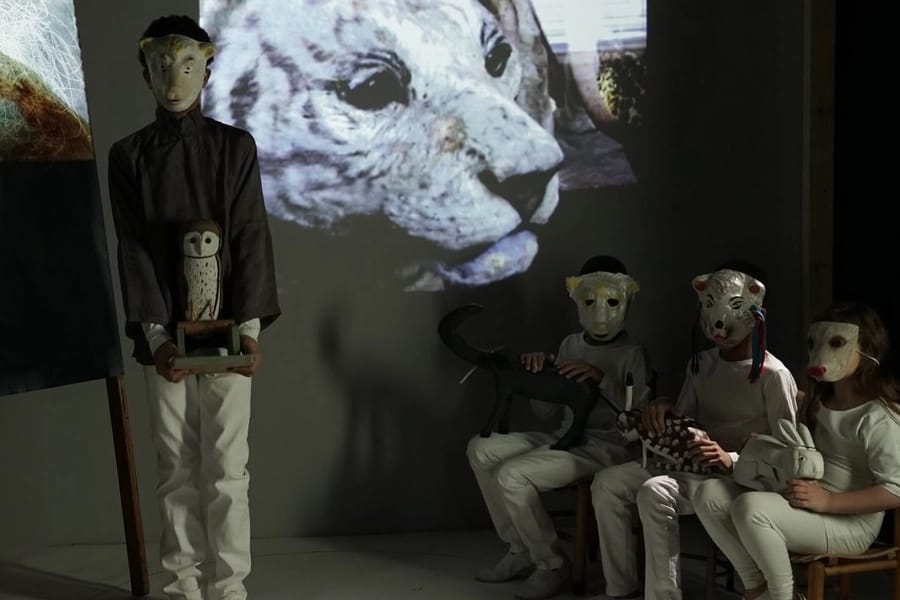
They Come to Us Without a Word, a multi-media exhibit by Joan Jonas that represented the U.S. at the 2015 Venice Biennale has its premiere in this country at The Fort Mason Center for Arts and Culture. It’s a work that combines video images of nature, painting, sculpture, drawing, and ghost stories from Cape Breton, off the Atlantic coast of Canada, where Jonas spends her summers. Admission is free, and the exhibit is up through March the 10th.
There’s more information about it at the Fort Mason Center website.
The work brings together several themed rooms, inspired by bees, fish, wind, mirrors, and ‘homeroom’. The room of ‘fish’ got its start when she was visiting Japan, and began painting what would eventually be 100 paintings based on a book showing that country’s variety of fish. The ‘bees’ room was sparked by a novel from Iceland. “I was working on a piece called Reanimation based on a Halldor Laxness novel Under the Glacier, which was written in the ’60s. But when I began to work on that, I thought, ‘oh, the glaciers are melting.’ And Halldor Laxness, the reason I was attracted to him, is because he writes so poetically about nature. And he had this wonderful quote which is in this show which is about bees, and what a miraculous thing: ‘Can a more super communion ever happen than a flower calling a bee to its pollen.’ Jonas combines footage of actual honeybees with video of children reacting and interacting with it, mimicking the dance of the honeybee. “Bees were in trouble, so the piece, without saying it directly, is a little bit about ‘we’re in trouble’ while showing the beautiful aspects of nature, but not mentioning that…. So I thought for the Venice Pavilion to make a piece about the situation, and to juxtapose the children who are performing in the piece. To have the children in relation to what’s happening to the environment, because they’re the ones who will inherit it.” Each of the rooms also includes video that tells, as oral history, ghost stories from Cape Breton. “I wanted to include ghost stories, and I read a lot of ghost stories, I didn’t want them to be literary. I like the everyday language of the Cape Bretoners telling their stories.”







